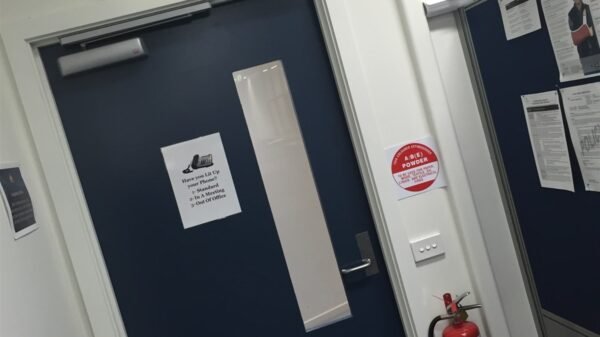Dizziness, unsteadiness, and disorientation are familiar health conditions that influence many people: vertigo and balance disorders. It’s a good idea to pay attention to many of these conditions because while they are often just temporary and manageable, they can also mean something more serious is going on.
Vertigo & Balance Disorders – Understanding
Dizziness where you or your surroundings seem to spin is called vertigo. While vertigo and headache are not the same as each other, they also can cause nausea and vomiting. Vertigo is most commonly caused by problems in the inner ear, often in the parts of the ear that control balance called the vestibular system.
A balance disorder is a condition in which you feel as if you are experiencing excessive movement that’s not actually occurring. Balance disorders can cause symptoms such as dizziness, unsteadiness, difficulty walking or feeling ‘off-balance’. Inner ear issues, neurological conditions and, sometimes, as a side effect of certain medications can cause these disorders.
Vertigo and Balance Disorders: Common Causes
Vertigo or balance disorders can develop from several things, including temporary issues and serious medical conditions.
- Inner Ear Problems:
One of the most common reasons for vertigo is called benign paroxysmal positional vertigo (BPPV), in which small crystals in the inner ear break loose and throw off your balance. Conditions other than VSRV that interfere with balance include inflammation of the vestibular nerve (vestibular neuritis) and Ménière’s disease (in which fluid builds up in the inner ear).
- Neurological Conditions:
Additional conditions related to vertigo and balance disorder include migraines, multiple sclerosis, and neurological conditions. In certain situations, vertigo is a sign that you are having a stroke or transient ischemic attack, which should be treated immediately.
- Head Injuries:
Balance problems especially if the vestibular system is involved can be caused by traumatic head injuries or concussions.
- Medications:
Some medications, including sedatives, blood pressure medications and antidepressants can cause dizziness as a side effect. In some cases this dizziness may be like vertigo, and so it is important to discuss any new dizziness symptoms with a doctor.
- Aging:
The vestibular system inevitably degrades as people age, and that can lead to balance issues. Other ear-related disorders are also more common in older adults.
Red Flags: When to Seek Medical Help
Some cases of vertigo and balance disorders are harmless and will disappear on their own, but some other cases need medical treatment. First of all, let’s acknowledge those signs of when a visit to an ENT specialist in Islamabad is necessary.
- Severe or Prolonged Symptoms: If you have dizziness or vertigo that lasts more than a few days and is progressively getting worse it is time to see a doctor. Symptoms that linger for days may mean that something else is wrong: Possibly, an inner ear infection or neurological disorder.
- Sudden Onset of Symptoms: A stroke typically occurs when there is a sudden loss of balance, severe headache or vision change along with weakness on one side of the body, slurred speech, or difficulty walking. In these cases, get emergency medical help right away.
- Hearing or Vision Problems: If you have sudden hearing loss, ringing in the ears (tinnitus), blurred vision along with dizziness, it could be caused by a problem in the inner ear or even a brain problem. Evaluation of these symptoms is immediate.
Vertigo and balance disorders diagnose
If you have vertigo or balance problems, visiting an ENT specialist in Lahore will mean a thorough examination. This involves review of a detailed medical history, and often a series of tests to assess your symptoms.
Physical Examination: To test your balance and see if BPPV is responsible for your vertigo, the doctor might perform a Dix–Hallpike maneuver.
Imaging Tests: If your doctor suspects a neurological problem, he or she may order imaging tests, such as MRI or CT scan, to rule out brain conditions, such as tumors or strokes.
Vestibular Function Tests: The tests are for inner ear and balance function. If ear problems are suspected, a hearing test may also be performed.
Treatment Options
The treatment for vertigo and balance disorders depends on what is causing it. Some common treatments include:
Medications: Anti nausea drugs and vestibular suppressants are drugs that doctors may prescribe to relieve symptoms of vertigo. These are temporary relief medications, but do not correct the original cause.
Vestibular Rehabilitation Therapy: For BPPV, physical therapy exercises are performed to recondition the brain to adapt to the changes to balance. Vertigo episodes can be reduced very effectively with vestibular rehabilitation therapy.
Surgical Options: In the unusual situation when medication and therapy do not get the job done, surgery may be essential, mostly for serious inner ear problems or particular kinds of vestibular disorders.
Conclusion
Vertigo and balance disorders can be unnerving but most of them are treatable. Still, knowing when symptoms are serious and need to be reviewed by a doctor will help protect your health and quality of life. Get help from your doctor right away if your symptoms are severe or persistent, dizziness comes on suddenly, or you have additional symptoms, such as hearing loss or weakness. Understanding the causes, symptoms and treatments of vertigo can allow you to take proactive steps to try to manage it and therefore your balance.




























































